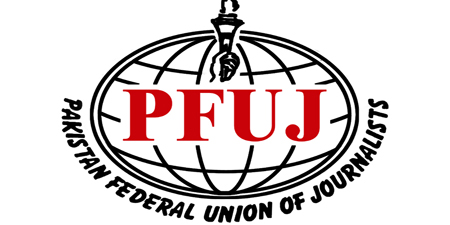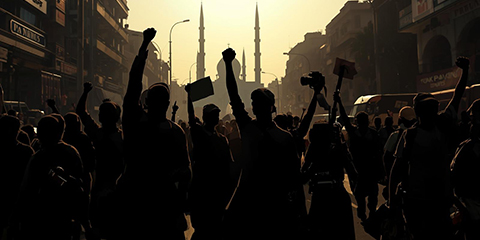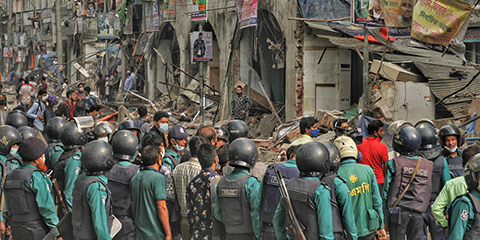PFUJ rejects Pakistan Media Regulatory Authority
JournalismPakistan.com | Published 6 years ago
Join our WhatsApp channel
ISLAMABAD - The Pakistan Federal Union of Journalists (PFUJ) has rejected the government’s decision to establish the Pakistan Media Regulatory Authority (PMRA).
Establishing such a regulator would be an act worse than the Press and Publications Ordinance promulgated by former military dictator General Ayub Khan, the union said in joint statement by PFUJ President Afzal Butt, and Secretary Ayub Jan Sarhandi.
“The PFUJ expresses serious concern over the government’s decision and warns that it would not accept such draconian black laws.”
The establishment of PMRA is shrouded in mystery, with the draft for the establishment of the authority not shared with relevant stakeholders.
“PFUJ has come to know that the draft for PMRA has provisions related to cruel punishments for violations, which have not been made public. Aimed at introducing a system of annual licensing for print media, the establishment of PMRA is akin to making the press subservient to the bureaucrats of the federal ministry of information and broadcasting. This violates Article 19 of the Constitution of Pakistan, which guarantees freedom of expression as a fundamental human right.
The PFUJ said that setting up of a federal institution to regulate printing and publication — which is a provincial subject after the 18th Constitutional Amendment — interferes in the domain of the provinces and is, therefore, also in violation of the Constitution.
“The government is violating the Constitution with the ulterior motive of subjecting the print media to draconian black laws, which would never be accepted by PFUJ.”
Bringing print and electronic media, i.e., radio, TV, and digital media, under a single regulatory authority is completely illogical, the statement said. The two domains are completely distinct from each other requiring different rules and regulations. Nowhere in the civilized world — including developed and developing countries — are the regulatory bodies and regulatory rules of the print and electronic media the same. Putting both print and electronic media under a single regulatory authority in Pakistan would, therefore, create serious problems for freedom of press, accountability, and governance.
The union pointed out that media stakeholders were not taken on board in the decision to form PMRA. “PFUJ would not accept enactment of any media-related law without its input in the process.
Establishment of PMRA would abolish laws like the Press Council of Pakistan Ordinance, Press Newspapers, News Agencies, and Books Registration Ordinance, and Pakistan Electronic Media Regulatory Authority (PEMRA), which were promulgated after consultations with media representatives.
Abolishing the laws above would also put an end to the Wage Award under which the media employees’ salaries are determined.
PFUJ has a long and proud history of struggle against such draconian laws and warns the government to stay away from opening another Pandora’s box for itself by establishing PMRA.
PFUJ urges the democratic forces, scholars, civil society, political parties, and lawyers to unite in raising their voice against government’s attempts at curbing freedom of the press.
The union has appealed to the All Pakistan Newspapers Society (APNS), Council of Pakistan Newspaper Editors (CPNE), and Pakistan Broadcasters’ Association (PBA) to fully support the struggle against the imposition of draconian laws to curb freedom of the press.
“Let us not forget that freedom of the press is the key to democratic freedom. As famously put by Thomas Jefferson, ‘Our liberty depends on the freedom of the press, and that cannot be limited without being lost.’”

























